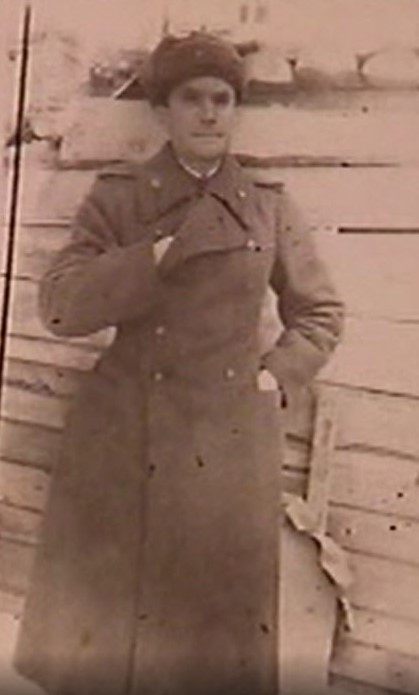Mikhail Slutsker was born in 1905 in Khotimsk, a town in easternmost Belorussia. His father Antsl was a dyer of wool, while his mother Beila was a homemaker. Mikhail had two brothers and three sisters, and when Antsl died in 1933, his eldest son, Grisha, took his place in the dye-house. The family, which hailed from a region marked by tensions between Hassidic and Misnagdic Jews, was Hassidic, and it remained religiously observant and Yiddish-speaking. Nevertheless, Mikhail attended a Russian school. In the mid-1930s, he moved to Minsk, where he studied at a commercial technical school [technikum]. After finishing it, he returned to his native region and served as the manager of an oil supply office in Klimovichi (some fifty kilometers northwest of Khotimsk). On the eve of the Soviet-German War, he was supervising the construction of a military oil products base.
On June 22, 1941, the Soviet-German War broke out, and on the same day Slutsker was drafted into the Red Army. He was charged with evacuating the oil supply and some technical equipment into the Soviet interior. His wife and two sons remained in Klimovichi, and were murdered by the Nazis together with the town's other Jews in November 1941. In 1942, during the Wehrmacht's summer offensive, Slutsker was sent to the frontline in Voronezh; there, he was shell-shocked, and went on to spend a month and a half in a hospital. After being discharged, Slutsker returned to his former line of duty, serving in the Fuel Supply Department of the 13th Army. As he would later recall, the supply service was, in a sense, more dangerous than frontline service: The supply trains and truck columns were heavily bombed by German aircraft.1
In the summer of 1943, Slutsker participated in the Kursk Salient operation. In the small town of Kromy, he took part in the exhumation of mass graves at a site where the Nazis had massacred Jews, Roma people, and partisan families. He continued his march through northern Ukraine and southern Poland (the areas of Rzeszów, Tarnobrzeg, and Kraków), passing through Auschwitz after the camp had been liberated. He was shocked to learn that Poles continued to kill Jews even after the liberation of the country from the Germans. He also noted the prevalence of antisemitism in the Red Army. He met V-E Day in Germany.
After the war, Mikhail Slutsker worked in administrative and managerial positions in Minsk and the Minsk area. He was married several times, and had a son. In 1994, he moved to the USA, and lived in Brooklyn, NYC.
- 1. YVA O.93/35185







